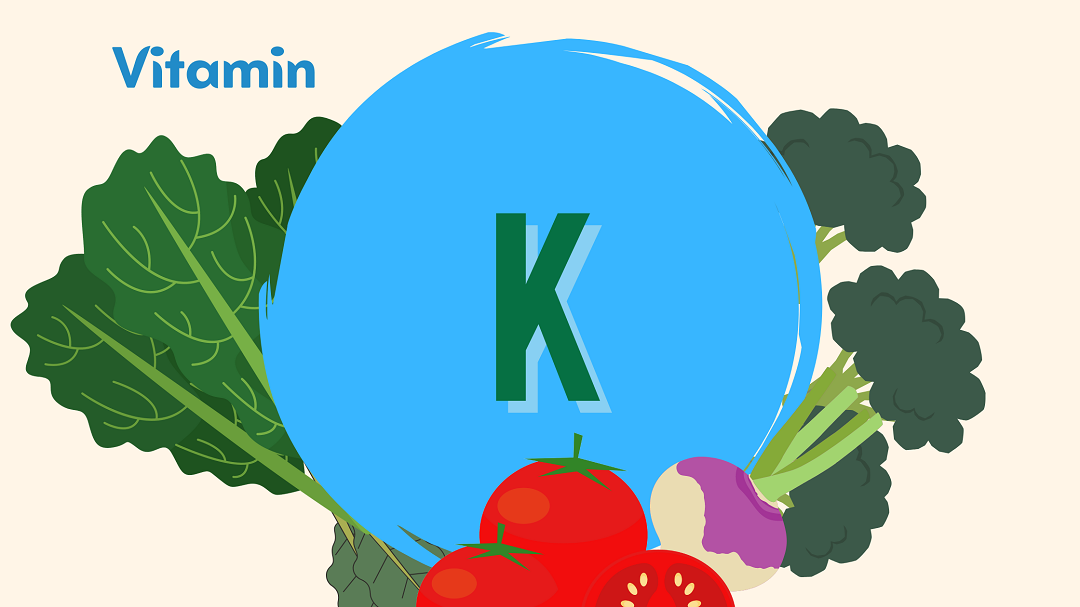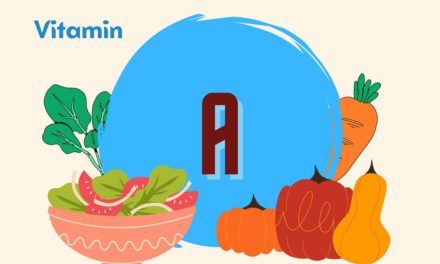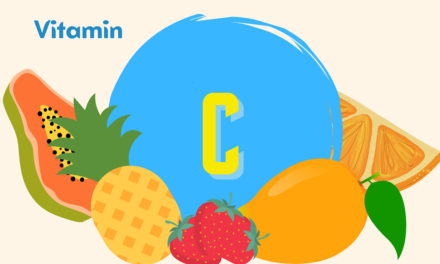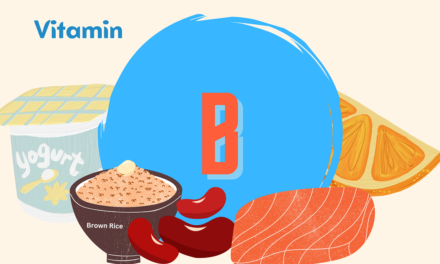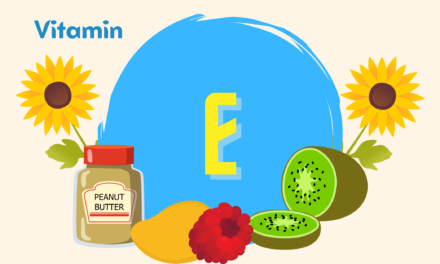Before we learn about vitamin K and its extremely important role in maintaining your health, I want to tell you why I am covering nutrition on Soulo.
The reason I am doing this series is that many times our cognitive or physical abilities are hampered, and we feel sick or demotivated because of improper nutrition, and not because we are disabled in any way. So, such a hidden roadblock must be brought to light and removed because it comes between us and the attainment of our goals.
In a previous larger article, I covered nutrition in general and how to consume the 6 essential nutrients your body needs properly for health and fitness. Building upon that I am doing a series of articles to expound on those nutrients and help you find the best sources of carbohydrates, lipids (fats and oils), proteins, vitamins, and minerals.
Because just telling you how to consume them properly won’t help. I must tell you where to get the best quality of them.
So, in this article, we will be covering the best sources of Vitamin K, understand its functions in necessary detail, and comprehend what its deficiency can result into.
Please take note that I am doing this based on thorough research on the internet and from the benefits or trouble I have experienced by adhering to a healthy or unhealthy diet.
So, although all the information presented here is from trusted sources this is simply a guide and not professional advice.
I strongly recommend taking professional advice if this article sparks that curiosity in you.
Basics of Vitamin K
Vitamin K is a group of fat-soluble vitamins that facilitate blood clotting, bone metabolism, and regulation of blood calcium levels.
Inadequate consumption can lead to impaired blood clotting, weakening of bones, and increased risk of heart disease.
One review noted that the vitamin can keep insulin levels balanced, improve insulin resistance, and decrease risk of developing diabetes.
Vitamin K is found in the liver, brain, heart, pancreas, and bone. It’s broken down quickly and excreted through urine and stool. That’s why it rarely reaches toxic levels even with high intake, as with other fat-soluble vitamins.
Antibiotic medicines destroy vitamin K-producing bacteria in the gut which can result in decreased vitamin K levels in the body. More so if you have been taking antibiotics for more than a few weeks. People with a poor appetite who are also using antibiotics are at a greater risk of vitamin K deficiency.
Health Benefits of B Vitamins
The most important role of Vitamin K is the healing of wounds and reversing the harmful effects of blood thinning medicines.
Other than that, below are some other notable functions and benefits of Vitamin K in the body.
Bone Health
Vitamin K plays an important role in supporting bone health. In line with the D vitamin, it encourages the calcium-binding process which supports the healthy functioning of bones and gums.
It strengthens the skeletal structure, increases bone density, and reduces fracture risk in older women. It’s even known to treat osteoporosis and bone loss.
Vitamin K has been observed to be central in improving dental health as well.
It stimulates the production of osteocalcin, a protein required for triggering the growth of new dentin, which is the calcified tissue below the teeth’ enamel. It’s also known to strengthen the teeth from the roots and prevent loss or decay.
Researchers have observed a correlation between low intake of vitamin K and osteoporosis.
Overall, it’s a vitamin that supports the maintenance of strong bones, increases bone density, and decreases the risk of fractures.
However, science is yet to fully attest to these observations.
Cognitive Health
One study noted that healthy individuals over 70 years with high blood levels of vitamin K had high verbal episodic memory performance.
One can derive from this that vitamin K safeguards cognitive health and especially memory.
Heart Health
Vitamin K is known to prevent mineralization in the heart arteries. This allows the heart to pump blood freely across the body. Mineralization occurs with age and is a major risk factor for heart disease. Appropriate consumption of vitamin K is known to slow down this process.
Best Sources of K Vitamin in Everyday Foods
Green leafy vegetables spinach, kale, broccoli, brussels, collard and turnip greens, sprouts, cabbage, lettuces, avocado, green peas, beet greens, and parsley are all great sources of vitamin K and many other vitamins.
Additionally, here’s a list of more foods rich in vitamin K:
- Pomegranate
- Dried Figs
- Blackberries
- Blueberries
- Sun-dried Tomatoes
- Grapes
- Red Currants
- Soybeans
- Sprouted Moong Beans
- Cashews
- Red Kidney Beans
- Hazelnuts
- Pine Nuts
- Pecan
- Walnuts
- Dried Thyme
- Dried Oregano
- Natto (fermented soybeans)
- Small concentrations in meat, cheese, eggs, whole milk, butter, and cream
Risks
Toxicity caused by consuming foods rich in vitamin K is rare but supplementation can lead to toxicity.
Vitamin K is known to interact with multiple common medications that include blood thinners, anticonvulsants, antibiotics, aspirin, antacids, cancer drugs, cholesterol-lowering drugs, and weight-loss drugs.
Therefore, if you are on any such medication, you should definitely consult a doctor to determine the appropriate vitamin K levels for you.
Signs of Vitamin K Deficiency
It’s uncommon to have a vitamin K deficiency. People drinking alcohol heavily are at higher risk of a deficiency and although rare, in server cases, a deficiency can increase clotting time and lead to hemorrhage and excessive bleeding.
As mentioned earlier people taking medications like antibiotics that block vitamin K metabolism which can in the long-term cause deficiency.
Common signs of a deficiency include:
- Longer blood clotting time
- Bleeding
- Hemorrhaging
- Osteopenia or Osteoporosis
Conclusion
While issues caused by vitamin K deficiency won’t be evident immediately but in the long term it can create major health issues for you.
So rather than focusing on consuming more vitamin K ensuring that you eat a varied diet filled with numerous vitamins will put you on the path to living a healthy life.
Dark leafy greens are especially rich in this vitamin. A lot of them provide over 100% of the DV in a single serving.
Diet restrictions due to allergies or diet choices can increase your chances of vitamin K deficiency.
Always ask a doctor before taking any supplements to be sure they will not interact with your medications or cause any unnecessary side effects.
These are the basics of vitamin K. If you want to continue learning about other vitamins then just click on the names of A, B, C, D, and E, and it will take you to their corresponding articles.
To learn about the best sources of carbohydrates, lipids (fats and oils) and proteins visit their pages.
If you want to get an overview of nutrition then read the article “6 Essential Nutrients that Your Body Needs and How to Consume them for Fitness”. To learn about the basics of exercise read the article Basics of Exercise and How to Select Appropriate Activity Levels for Fitness.
I would also encourage you to check out the article on Pranayama, which I believe is one of the best ways to enhance our health and uplift our spirits, apart from good nutrition and exercise, and on the same wavelength also read the article on sound healing which is a scientific and spiritual discussion on the healing power of sound and frequencies.
I hope you get tons of value from this series and if you do then consider subscribing to Soulo’s YouTube channel or following it on Instagram. You can also join my newsletter list by using the form below.
Thanks for reading and I hope you apply everything you learn on Soulo Motivation and enhance your life one day at a time.

